
Topics
Today is the 37th anniversary of the death of the Rev. Dr. Martin Luther King, Jr. He was assassinated on April 4th, 1968 in Memphis, Tennessee. We hear an excerpt of his “Beyond Vietnam” speech that he delivered a year to the day before his death. [includes rush transcript]
Today is the 37th anniversary of the death of the Rev. Dr. Martin Luther King, Jr. He was assassinated on April 4th 1968 at the Lorraine Motel in Memphis, Tennessee. He was just 39 years old.
While, King is primarily remembered as one of the leading figures in the civil rights movement in this country, he was also one of the country’s most prominent opponents of the Vietnam War and a staunch critic of overall U.S. foreign policy.
In his “Beyond Vietnam” speech delivered at New York’s Riverside Church on April 4, 1967 — a year to the day before he was murdered — King called the United States “the greatest purveyor of violence in the world today.”
Time magazine called the speech “demagogic slander that sounded like a script for Radio Hanoi,” and the Washington Post declared that King had “diminished his usefulness to his cause, his country, his people.”
This is an excerpt of that speech that King gave on April 4th, 1967.
- The Rev. Dr. Martin Luther King, Jr., giving his “Beyond Vietnam” speech at Riverside Church in New York on April 4, 1967.
Courtesy: Pacifica Radio Archives.
Transcript
AMY GOODMAN: We will end up today on the this anniversary of the death of the Reverend Dr. Martin Luther King. It’s the 37th anniversary. He was assassinated on April 4, 1968, in Memphis, Tennessee. 39 years old. Exactly one year before, on April 4, 1967, he gave a major address at Riverside Church opposing the Vietnam War. This is an excerpt of that speech.
REV. DR. MARTIN LUTHER KING, JR.: I come to this platform tonight to make a passionate plea to my beloved nation. This speech is not addressed to Hanoi or to the National Liberation Front. It is not addressed to China or to Russia. Nor is it an attempt to overlook the ambiguity of the total situation and the need for a collective solution to the tragedy of Vietnam. Neither is it an attempt to make North Vietnam or the National Liberation Front paragons of virtue, nor to overlook the role they must play in the successful resolution of the problem. While they both may have justifiable reasons to be suspicious of the good faith of the United States, life and history give eloquent testimony to the fact that conflicts are never resolved without trustful give and take on both sides.
Tonight, however, I wish not to speak with Hanoi and the National Liberation Front, but rather to my fellow Americans. That is at the outset a very obvious and almost facile connection between the war in Vietnam and the struggle I and others have been waging in America. A few years ago there was a shining moment in that struggle. It seemed as if there was a real promise of hope for the poor, both black and white, through the poverty program. There were experiments, hopes, new beginnings. Then came the buildup in Vietnam, and I watched this program broken and eviscerated, as if it were some idle political plaything of a society gone mad on war, and I knew that America would never invest the necessary funds or energies in rehabilitation of its poor so long as adventures like Vietnam continued to draw men and skills and money like some demonic destructive suction tube.
AMY GOODMAN: An excerpt of the speech of Dr. Martin Luther King a year before he was assassinated. This speech given on April 4, 1967. He was assassinated a year later, April 4, 1968. This is the 37th anniversary of his death.

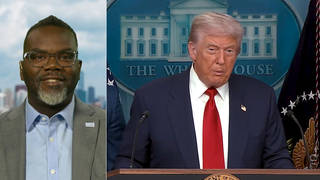
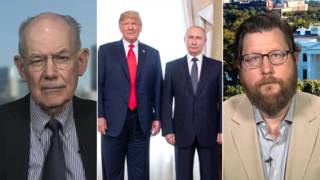
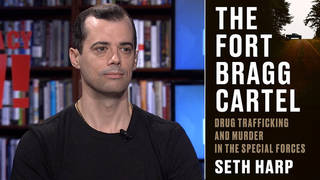
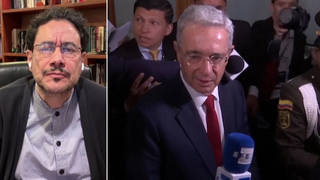





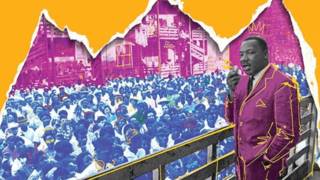

Media Options